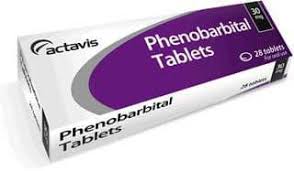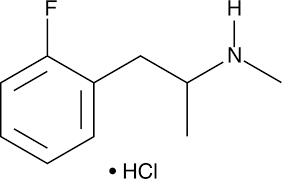Phenobarbital (Phenobarbital) / Luminal
€350.00 – €1,300.00
Phenobarbital, also known by its brand name Luminal, is a barbiturate medication primarily used to treat seizures, insomnia, and in some cases, anxiety. It works by depressing the central nervous system (CNS) to produce sedative, hypnotic, and anticonvulsant effects. Phenobarbital is one of the oldest drugs in the barbiturate class and is still widely used in clinical practice, especially for managing certain types of epilepsy and seizure disorders.
Chemical & Physical Properties:
-
Chemical Name: Phenobarbital
-
Brand Names: Luminal, Solfoton, among others
-
Molecular Formula: C12H12N2O3
-
Molecular Weight: 232.24 g/mol
-
Appearance: It is typically available as white crystalline powder, tablets, or oral suspension for medical use.
Primary Uses:
-
Seizure Control: Phenobarbital is commonly prescribed to manage epilepsy and other seizure disorders, particularly tonic-clonic seizures (grand mal seizures), partial seizures, and status epilepticus (severe, prolonged seizures). It is often used in combination with other antiepileptic medications.
-
Sedation and Hypnotic: As a CNS depressant, phenobarbital is used in the short-term management of insomnia and for inducing sedation before medical procedures, especially when other sedatives are not effective.
-
Anxiety and Withdrawal: In some cases, phenobarbital is used to calm anxiety or to help patients with alcohol withdrawal symptoms due to its sedative properties.
-
Preoperative Sedation: Phenobarbital may be used in the preoperative setting to help patients relax and prepare for surgery or medical procedures.
Mechanism of Action:
Phenobarbital works by enhancing the action of GABA (gamma-aminobutyric acid), an inhibitory neurotransmitter in the brain. This results in a depressive effect on the central nervous system, leading to sedation, relaxation, and reduced neuronal excitability. In the context of seizures, this effect helps prevent the abnormal electrical activity in the brain that leads to seizures.
Side Effects and Risks:
While phenobarbital is effective for managing seizures and inducing sedation, it also carries significant side effects and risks, especially with long-term use:
-
Cognitive Impairment: Phenobarbital can cause memory problems, confusion, and impaired judgment, particularly in older adults or those on prolonged therapy. It may also impair motor skills, making activities like driving or operating heavy machinery dangerous.
-
Dependence and Withdrawal: As a barbiturate, phenobarbital carries a risk of physical dependence and tolerance. Gradual dose reduction is necessary when discontinuing the medication to prevent withdrawal symptoms, which can include anxiety, tremors, seizures, and delirium.
-
Respiratory Depression: Like other barbiturates, phenobarbital can suppress breathing, especially when taken in high doses or combined with other CNS depressants such as alcohol or benzodiazepines. This can lead to hypoxia (lack of oxygen) and death in severe cases.
-
Drowsiness and Sedation: Phenobarbital’s sedative properties can cause excessive drowsiness and lethargy, which may affect daily activities and overall quality of life.
-
Drug Interactions: Phenobarbital interacts with a wide range of other medications, including antidepressants, antibiotics, blood thinners, and anticonvulsants, often leading to altered drug effectiveness or increased toxicity. Patients taking phenobarbital should always inform their healthcare provider about other medications they are using.
Administration:
Phenobarbital is available in different forms, including:
-
Tablets: Used for long-term seizure management.
-
Oral Suspension: A liquid form used when the tablet is not practical for patients, such as children or those with difficulty swallowing pills.
-
Injection: Administered in a hospital setting for rapid onset sedation or seizure control, particularly in emergency situations.
Side Effects Management:
To mitigate the side effects of phenobarbital, healthcare providers often monitor blood levels of the medication, particularly in patients on long-term therapy. Routine checks for liver function, kidney function, and blood counts are also recommended to prevent toxicity and manage any potential side effects.
Alternatives:
While phenobarbital remains a treatment option for seizures and sedation, it is increasingly being replaced by safer alternatives, such as:
-
Benzodiazepines (e.g., diazepam, lorazepam) for seizure control and anxiolysis due to their lower abuse potential and safer side effect profile.
-
Other anticonvulsants (e.g., levetiracetam, valproic acid) are often preferred for managing epilepsy, as they have a more favorable side effect profile and are less likely to cause cognitive impairment or addiction.
| Tablets | 100 tablets, 200 tablets, 500 tablets, 1000 tablets |
|---|











Reviews
There are no reviews yet.